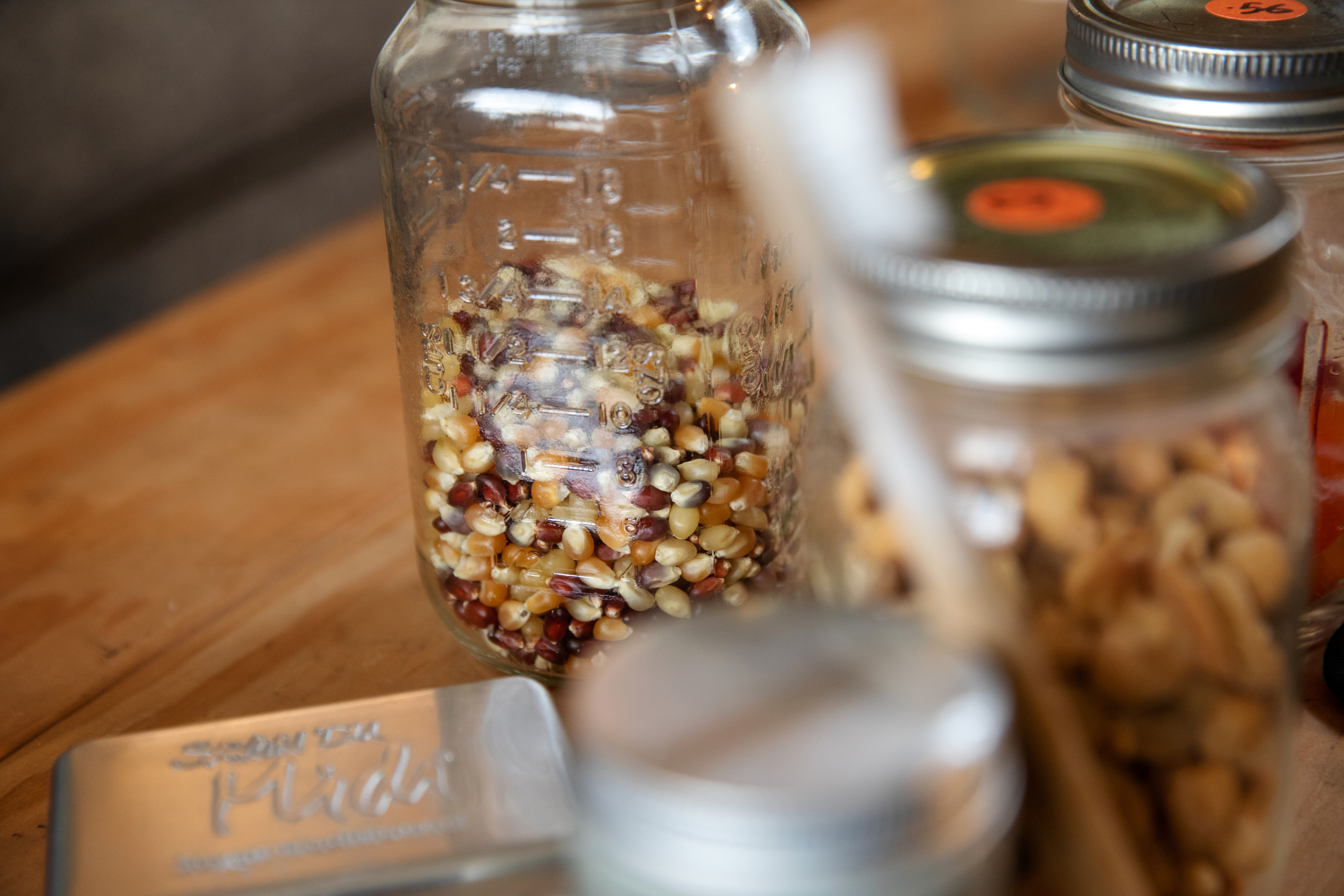
A local blogger shares her journey to a sustainable lifestyle—and promises it’s not as hard as it looks
A simple question popped into Emily Jean McCollister’s mind a few years ago: “Where does my coffee come from?” She didn’t know it then, but McCollister was about to begin a whole new lifestyle.
Working at coffee shops while she was in college at LSU taught her about the beverages’ seed-to-cup journey: how the beans are picked by hand, processed, shipped, roasted and made—and how each step in that process contributes to the coffee’s quality.
But McCollister began thinking deeper: Who is the person planting that seed? Who is processing each bag of coffee, and what are they being paid? Soon, she was transitioning to a minimalist, “zero-waste” lifestyle—one where she thought deeply about every purchase, its origins and where it would end up once she was done with it. She started carrying around reusable utensils in her purse to use during lunch. She changed how she handled everything from her takeout orders to shopping for her wedding dress.
|
|
She started sharing her experiences on her blog, Trying to Live a Waste-Conscious Life, and her Instagram stories.
With Earth Day right around the corner, it’s a good time to think about the growing impact of our daily habits—and open ourselves up to small, sustainable changes we can all weave into our daily lives. We sat down with McCollister, and she shared some tips.
ECO-FRIENDLY DINING
McCollister’s favorite ways to think sustainably about dinner:
1) Bring your own products to the restaurant.
“You’ll prevent a lot of waste by bringing your own reusable water bottle, cup, utensils, napkin, bag and straw if you need or want one. You can even bring to-go containers for leftovers, pick up treats when you’re shopping or to carry your own lunch with you.”
2) Buy less stuff.
“You can reduce your food waste by buying less groceries at a time, and going to the grocery store more often. You’ll reduce the amount of stuff that goes into a landfill, and your purchases will be more thoughtful and well-informed instead of impulse buys.”
3) Eat real—not processed—food.
“Most of your plastic and trash packaging is going to come from your grocery store purchases. By eating fresh food, not only are you doing your body and mind a favor, but you’re also decreasing the likelihood you’ll be purchasing packaged foods. You can buy fruits and vegetables loose; homemade bread that you transport home in your own bags. When you do buy grains, rice, flours and snacks, get them from a bulk section, and take them home in your own containers.”

MCCOLLISTER’S GO-TO SHOPS
For meat: Iverstine, a local butcher that can accommodate packaging your food in your own containers.
For bulk spices and condiments: Our Daily Bread, a market/bakery with a small section of bulk spices as well as plastic-free vegetables, jars of sauerkraut and kimchi, and eggs in compostable containers.
For produce: Reduce the footprint of your fruits and veggies by buying from local farmers at places like Southside Produce and the Red Stick Farmers Market.
For snacks and candy: Alexander’s Highland Market, Lolli and Pops and The Fresh Market all have bulk candy aisles.
For various other goods: Whole Foods Market sells kombucha, eggs, pasta, pickles, olives and more in recyclable and reusable containers. You can also put items like bread and cheese in your own containers.
LEARN MORE THIS MONTH
McCollister is hosting a Zero Waste Workshop to discuss how we can lessen our environmental footprint.
Saturday, April 6
10 a.m. to noon
White Star Market annex on the second floor
Find McCollister on her blog at theecopoet.com or Instagram at @ecopoet.
Editor’s note: Emily McCollister is the niece of Rolfe McCollister, the chairman of Louisiana Business Inc., which publishes 225.
This article was originally published in the April 2019 issue of 225 Magazine.
|
|
|
